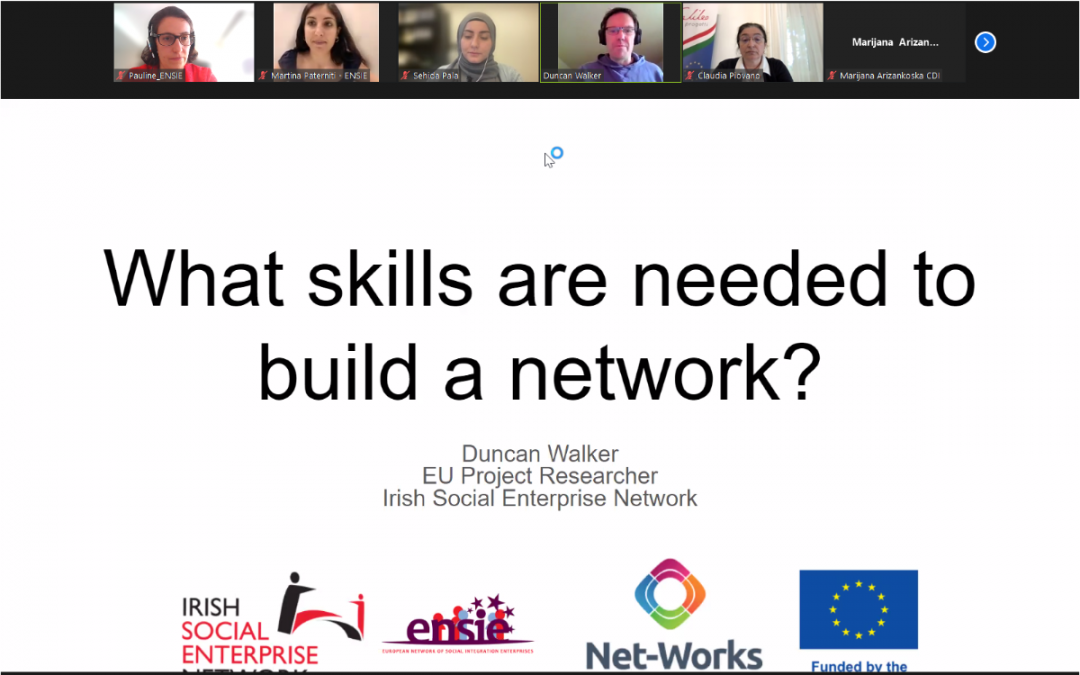From our partners in ENSIE: https://www.ensie.org/newsroom/news/project-which-skills-for-a-wises-network
On May 18th, ENSIE organised a webinar in the framework of the EU Vocational Skills week on “What skills are needed to build a (WISEs) network?” This webinar was also an opportunity to present the work done in the framework of the Net-Works project, an Erasmus plus project that aims to establish new national or regional networks of adult education providers.
The webinar started with a presentation of the latest news on the Net-Works project by Martina Paterniti, Senior project officer at ENSIE. One of the goals of the project is to identify the skills needed to facilitate the creation of local, regional or national work integration social enterprises (WISEs) network. Those skills are following the three main topics addressed by the project: network capacity building, pedagogical approach promotion and cooperation and financial stability. She finally underlined how crucial is the creation of WISEs networks in some countries as it will reinforce advocacy and lobbying for the sector and lead to a recognition of WISEs and their benefits in some countries where it is not yet the case.
The second presentation was made by Duncan Walker, from the Irish Social Enterprise Network (ISEN), who gave an overview of the skills required for creating a network. According to him, different skills are needed, depending on if the network is in its start up phase or already functioning. WISEs networks, and networks in general, are working along three pillars: networking, education and advocacy. For each of those pillars there are specific competences that are needed and tasks that are related. However, overall skills needs can be identified for any network : building partnerships, communication (internal and external), policy analysis and representation.
The final presentation was made by Claudia Piovano, from Galileo Progetti, Hungary, who presented the Gólya Tábor project, another project linked to adult education and funded by Erasmus + in Hungary. Gólya Tábor project proposes the organisation of training for young disadvantaged people that are attending VET. A pathway to support them have been created, starting with a few preparatory meetings, followed by a three days Youth camp during which the focus is put on professional training, social inclusion and employment. During the camp, all the participants are sharing a house in the countryside, to learn cohabitation among other skills. During those three days, the trainer help the participants to analyse problems, restore their confidence and motivation, set goals, develop soft skills,… This project is very enriching for this vulnerable public and it is crucial to be pursued in Hungary.
Overall the webinar was very instructive and showcased the need to ensure that all the WISEs and WISEs networks employees have the right skills in order to be able to develop the sector, both at the local and the national and European level.



